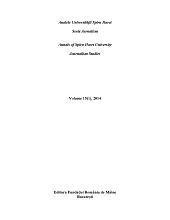COMMUNICATING CORRUPTION AND BARRIERS TO ECONOMIC DEVELOPMENT: CASE STUDY ROMANIA
COMMUNICATING CORRUPTION AND BARRIERS TO ECONOMIC DEVELOPMENT: CASE STUDY ROMANIA
Author(s): Luminiţa IonescuSubject(s): Media studies
Published by: Editura Fundaţiei România de Mâine
Keywords: financial crime; corruption; government; fraud
Summary/Abstract: It is well known that corruption and fraud are barriers to the economic development. In the last decades, European Union has adopted various directives against money laundering, terrorist financing and corruption. Corruption could cause poverty and social disorder with negative consequences for the European development. Romania became member of European Union at the beginning of 2007 and started the fight against corruption, fraud and money laundering. In the last years, Romania has fully implemented European directives in national legislation for the benefits of national economy and developed national agencies to fight against fraud and corruption. The National Agency for Fiscal Administration (ANAF) has become an important agency to fight against corruption and fraud in order to collect taxes, contributions and other social charges. The Romanian government has implemented a modern and flexible fiscal system in order to facilitate the voluntary compliance of the tax payers for the prevention of the tax fraud and to increase the public service quality and economic development.
Journal: Analele Universităţii Spiru Haret. Seria Jurnalism
- Issue Year: 15/2014
- Issue No: 1
- Page Range: 41-49
- Page Count: 9
- Language: English
- Content File-PDF

